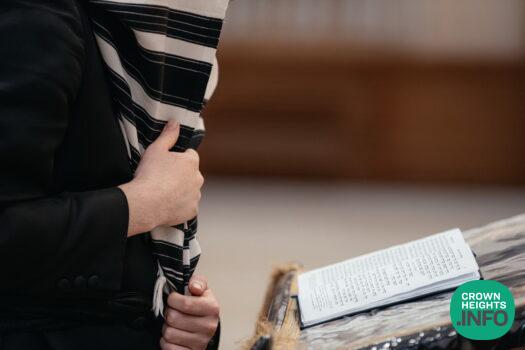
Weekly Dvar Torah: Reflections in Elul – The Struggle Between the Soul and Body
From the moment a soul enters the body, life begins with an ongoing battle between the spiritual and material aspects of existence. The soul, a Divine spark, yearns for G-dliness, intellectual growth, emotional depth, and spiritual fulfillment. In contrast, the body, rooted in earthly desires, seeks physical pleasures—food, rest, and indulgence in materialistic pursuits. This tug-of-war between the soul and body is the essence of human life, a constant battle between the Divine and the physical.
During the Jewish month of Elul, a time of reflection and spiritual reckoning, we are given an opportunity to reconcile this inner conflict. Elul, the month leading up to the High Holidays, is a period where we introspect, recalibrate, and realign our lives with our spiritual goals. It’s a time to assess where the soul and body stand in their ongoing struggle and to seek harmony between the two.
This struggle is illustrated in the weekly Parsha of Ki Teitzei, where we learn that when a person goes out to war, they may take captives. G-d commands that these captives are given 30 days of reflection. In a symbolic sense, this “captive” represents the body in its battle with the soul. During these 30 days, the body is given time to reflect on its relationship with the soul and its dependence on it for life. The body comes to realize that it cannot exist without the soul, and the soul is a spark of G-d, the source of all life.
This reflection empowers a person to overcome their materialistic inclinations and to recommit to living a soul-driven, spiritually conscious life. The reward for this inner reconciliation is a sense of freedom.
The Parsha further presents a curious law regarding a man with two wives, one beloved and the other despised. If the firstborn son is from the despised wife, the father must still recognize him as the firstborn and grant him the privileges of that status. This parable can be interpreted as an allegory for the two souls within each person: The G-dly soul, beloved for its pursuit of spirituality, and the animal soul, despised for its indulgence in earthly pleasures.
The G-dly soul seeks closeness with G-d and spiritual growth, while the animal soul denies G-d’s existence, chasing only bodily pleasures. However, in the grand scheme of creation, the firstborn—the animal soul—plays a crucial role. G-d created the world in such a way that the animal soul, despite its base desires, can come to recognize G-d’s presence and purpose. This process of transformation is central to the Jewish mission of bringing G-d’s light into the physical world.
By engaging in daily prayer and spiritual practices, the Jew helps the animal soul recognize the unity and oneness of G-d, transforming its base desires into a yearning for G-dliness. This is the ultimate purpose of creation: the animal soul, initially despised for its materialism, becomes a willing participant in the Divine mission.
In the Zohar, it is said that three entities are bound together: the Jewish people, the Torah, and G-d. This connection exists on both internal and external levels. Externally, the world seems to be governed by the survival of the fittest, a realm where G-d is hidden and material concerns dominate. However, internally, G-d’s desire is for humanity to create a dwelling place for Him within the mundane world.
A Jew’s daily life may appear focused on mundane tasks, such as earning a living, but beneath the surface, these activities are transformed into acts of holiness. For instance, the money earned can be used for charity, to purchase materials for mitzvot, or to support a family’s observance of Shabbos and other commandments. Similarly, the Torah may seem like a book of laws, but its deeper wisdom reveals the secrets of creation and the purpose behind each commandment, guiding Jews in their mission to reveal G-dliness in the world.
This internal focus, the drive to uncover the Divine within the physical world, is the essence of Jewish life. By balancing the external, material struggles with internal, spiritual growth, Jews fulfill G-d’s desire to make the world a dwelling place for His presence. As we approach Rosh Hashanah, the Jewish New Year, this internal mission becomes even more critical, as we crown G-d as King and ask for renewed energy to continue this Divine work.
We find this also in the after-blessing for bread which includes two distinct blessings. The first, instituted by Moshe, thanks G-d for feeding the entire world with kindness. The second acknowledges the gifts G-d has given, such as the land and the covenant of circumcision. The difference in the wording of these blessings reflects the distinction between heavenly and earthly bread.
Heavenly bread, like the manna provided to the Israelites in the desert, is a direct gift from G-d, beyond human effort. This requires a special blessing that draws down Divine energy. Earthly bread, on the other hand, is produced through human effort, in partnership with G-d’s natural processes. While both are essential, the process of creating earthly bread involves removing spiritual blockages. This allows for a continuous flow of Divine blessing, symbolized by the land flowing with milk and honey.
The Jewish spiritual journey is one of balancing the needs of the body and the aspirations of the soul, of internalizing Divine wisdom and bringing it into action, and of transforming the physical world into a dwelling place for G-d. As the New Year approaches, we are reminded of our mission to reconcile these forces and to strive for a life where both the animal and G-dly souls are aligned in service of the Divine. This process mirrors the coming of Moshiach, the ultimate realization of G-d’s plan for the world.
Have a Divinely Infused Shabbos in the Mundane,
Gut Shabbos
Rabbi Yosef Katzman











